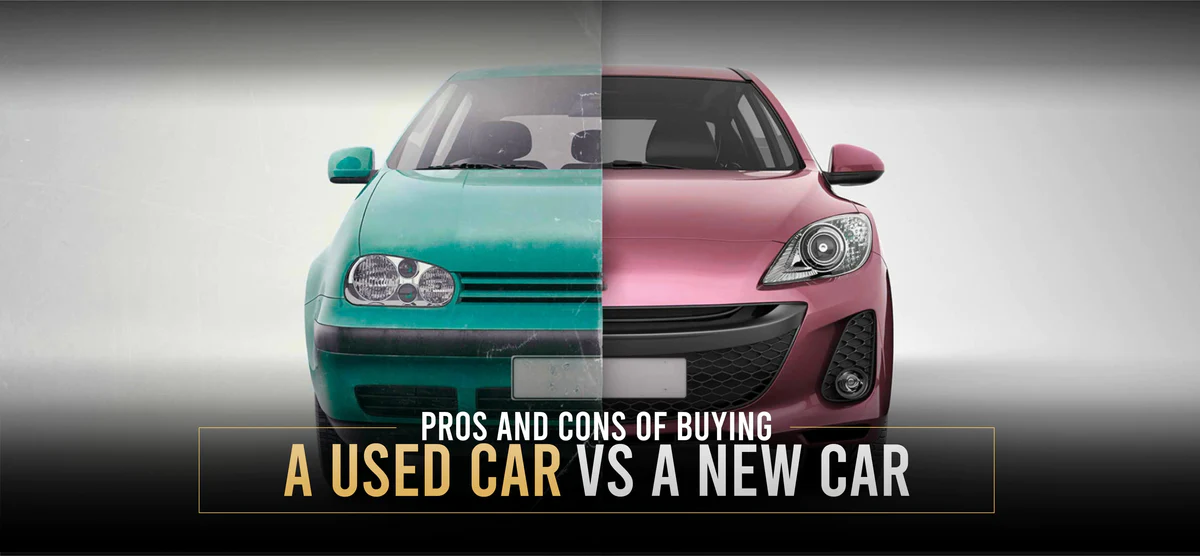Pros and Cons of Buying New Vs Used Cars

When car shopping, it’s important to determine which vehicle characteristics are most important and stick with that determination. This can help narrow down a vehicle selection, and ensure that features like wireless smartphone mirroring are included in the final purchase.
Other considerations include the amount of depreciation, financing and insurance rates. Consider the pros and cons of buying new vs used cars to decide what’s best for you.
Affordability
If you choose to buy a new car, you can take advantage of manufacturer rebates and financing deals. These discounts can lower the car’s price below MSRP and reduce your total cost of ownership.
New cars are also backed by warranties, which can protect you from significant maintenance costs. However, some buyers may have to sacrifice add-ons like a premium sound system or upgraded seating. It’s also difficult to assess a used car’s reliability, since you have no idea what damage occurred under the previous owner.
If you want to save on upfront expenses, buying a used vehicle is a wise option. You can expect cheaper insurance rates, titling fees and sales taxes. Additionally, most used vehicles depreciate slower than their new counterparts. This can help you manage your financial commitments.
Reliability
New vehicles have the latest technology and safety features. They also typically get better fuel economy.
They’re less likely to need costly repairs, compared to used cars. It can be difficult to find a used car that matches your exact needs and has the right combination of color, options, and interior finish.
It’s usually cheaper to insure a used car. This is because a used car loses most of its value when it’s first driven off the lot. And if you’re financing your vehicle, the depreciation will be spread over more time than with a new model. Buying a used car also gives you the opportunity to save on sales tax. This is because taxes are higher on new cars. You may also save on interest rates.
Safety
When buying a new car, you get the peace of mind knowing that your vehicle has been thoroughly tested to ensure that it doesn’t have any issues that may impact its reliability. New cars also have the latest safety features, including lane departure warnings and adaptive cruise control.
On the other hand, there are some risks associated with buying a new car, including higher financing rates and insurance costs. With a used car, these costs are often lower because the vehicle’s depreciation has already occurred and been paid for by its previous owner. Additionally, you have less choice with a used car when it comes to selecting the exact model, options package, or wheel design that you want. Nevertheless, a used car can still be a good option if you are looking for a reliable vehicle at a reasonable price.
Technology
New cars offer the latest technology, such as 360 degree safety view cameras, remote vehicle monitoring software, and stolen car recovery systems. They also usually feature better fuel efficiency and lower emissions. You can even choose from hybrid or electric vehicles if that’s your preference.
In addition, the purchase of a new vehicle may be easier since you’ll likely get better terms from a dealership for financing. Digital investments that directly address customer pain points in the process—such as used vehicle valuation algorithms and remote document “e-signing” capabilities1—can elevate the buying experience. This is important because studies show that consumers dislike the lengthy paperwork and anxiety-inducing aspects of the auto-buying process. Using these tools can improve the overall shopping experience, which can lead to a more successful sales event and long-term service relationship.
Maintenance
Buying a new car will cost you more upfront and can have higher maintenance costs. However, most new cars come with a manufacturer warranty that will protect you from unexpected repairs and breakdowns.
New cars also meet the latest fuel efficiency standards and often have the latest safety features. They may even offer free roadside assistance.
If you choose to buy a used vehicle, the benefits include less depreciation and lower monthly payments. But it is important to research the make and model of a car you are interested in and get preapproved for financing to ensure you don’t overspend. A good credit score can help you save money by getting a competitive interest rate. Additionally, shopping for a car from a private seller can mean fewer consumer protections, including lemon laws.

